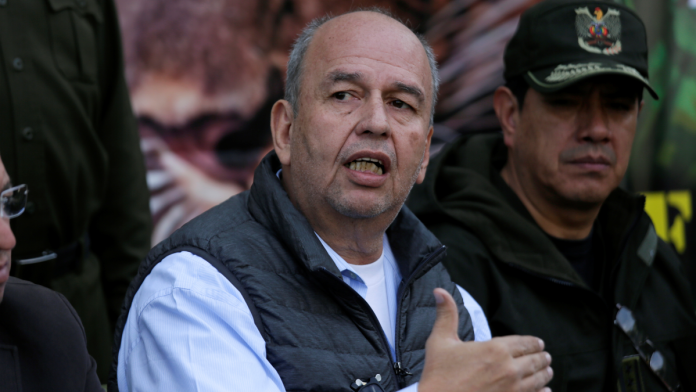Bolivia’s former interior minister, Arturo Murillo, has been deported from Florida back to his home country, where he now faces serious charges. The accusations against him include corruption, illegal arms imports, and responsibility for a violent crackdown on protesters in 2019 that left dozens of people dead.
Murillo, 61, had just completed a four-year prison sentence in the United States for money laundering. He was found guilty of taking more than half a million dollars in bribes to help a Florida company secure a contract to sell tear gas to Bolivia. Days after his release, U.S. immigration officers rearrested him. He remained in custody while fighting his deportation but lost his final appeal on July 29.
On Wednesday night, Murillo was placed on a deportation flight operated by Bolivia’s state airline. His flight was expected to land in the city of Santa Cruz early Thursday morning.
Alejandro Toledo receives second prison term in Peru’s Odebrecht scandal
Crackdown After Disputed Election
The charges in Bolivia go far beyond financial crimes. Authorities accuse Murillo of overseeing one of the country’s darkest moments in recent history. In 2019, Bolivia was thrown into chaos following disputed elections, when then-president Evo Morales sought another term in office. Protests erupted nationwide amid accusations of fraud.
After Morales left the country, Jeanine Áñez became interim president [an interim president is a temporary leader who takes power in times of crisis until new elections are held]. Murillo quickly rose as one of her most outspoken ministers. Security forces under his command launched heavy crackdowns against demonstrators. Human rights groups later described some of the events as massacres. Reports say security forces opened fire on gatherings of protesters, leaving dozens killed and many more injured.
Alexis Garcia pleads guilty in $4 million Florida payroll fraud scheme
These actions form the basis of the most serious accusations against Murillo — crimes against humanity. Bolivian officials say he must answer for his role in authorizing and directing the use of excessive force during the unrest.
Convictions and Political Shifts
While living in exile in the United States, courts in Bolivia continued to pursue cases against Murillo. He was convicted in absentia [this means the trial and sentencing took place even though he was not physically present in court] in two of six cases. In one case, he was sentenced to over five years for importing tear gas from Ecuador without proper permission. In another, he received an eight-year sentence for buying overpriced tear gas from a Florida-based company.
Harvard secures court victory as $2.2 billion in federal grants are unfrozen
At the same time, Bolivia’s political scene has seen major changes. The ruling Movement Toward Socialism party, led for years by Morales, suffered setbacks in recent elections. President Luis Arce, who came to power in 2020 after Áñez’s interim government collapsed, has overseen a wave of trials against former officials.
Several high-profile figures have also faced legal challenges. Opposition leader and governor Luis Fernando Camacho was recently released to house arrest after spending years in preventative detention. A judge also annulled charges against Áñez in connection with the 2019 killings, shifting her case to a special process reserved for former heads of state.
Justice Minister Jessica Saravia said Murillo must serve the sentences already handed down by the courts, while Government Minister Roberto Ríos expressed hope that the judiciary would enforce them.
The deportation marks a dramatic turn in the long saga of a once-powerful figure who fled to avoid prosecution but was ultimately returned. Now back in Bolivia, Murillo faces not only the weight of multiple convictions but also trials for the bloodshed that scarred the nation in 2019.
